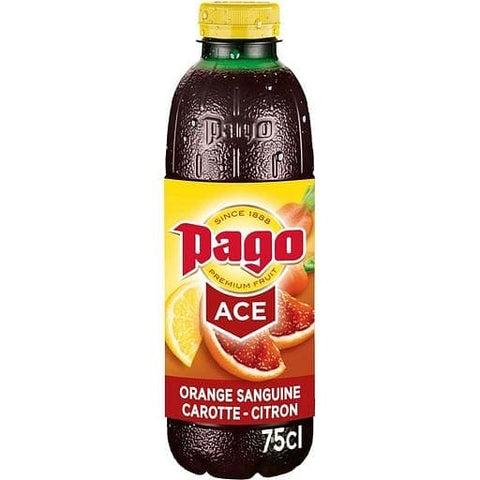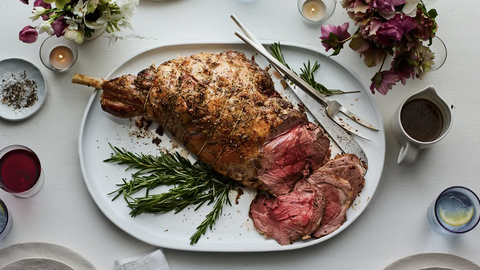Some people may not think of specialty food as a souvenir, especially if they visit a place known for its cuisine. But you can find some excellent specialty products in France, and they make great gifts or even souvenirs to take home yourself.
Many different areas of France produce specialty foods that are perfect for bringing home or giving as gifts. In my experience, the best things to bring back from a trip are things that can't be bought at home. If a product is widely available, it's probably not worth lugging around in your suitcase. It will also be cheaper to buy at home since stores have less overhead costs than individual importers.
Another thing I look for is local specialties—regional products that are only available in a specific area. They're typically the most popular souvenirs because they're unique and tell a story.
What do you bring back? Some ideas for gifts
- Chocolate
- Coffee or tea
- Cheese
- Wine and spirits
- Canned goods and jams/jellies
- Mustard and other condiments
- Pastry or baked goods
Here are some great French souvenirs to buy in Paris:
Chocolates, macarons, and pastries: There are so many delicious sweets in Paris that it can be hard to choose! If you're looking for something not too sweet, try croquants made with almonds and sugar. If you want more chocolate, go for mendiants (chocolate discs topped with dried fruit). And if you love macarons, get them from Ladurée or Pierre Hermé (my favorite!).
Here is a big list of French food that you would bring back from France:
Caramels au Beurre Salé
These salted butter caramels come from Brittany, where there is no shortage of salty butter. Salted butter caramel is unique in usage.
Canned Sardines
Sardines are small fish, like herrings. They are often canned and can be eaten as a snack or used in recipes. The best-known and most popular canned fish is sardine. Sardines are young pilchards or herrings canned in a thin tomato sauce, mustard sauce, brine, oil, or other liquids. They can also be dried and salted.
Canned sardines can be eaten straight from the can, but they can also be used in many creative ways. Try them in salads, pasta dishes, or toast for an easy snack!
Fleur De Sel
The French are proud of their fleur de sel, hand-harvested salt from coastal ponds and marshes in the Brittany region of France.
- This salt is considered among the finest globally and is highly prized by chefs for its flavor and texture.
- When properly stored, fleur de sel does not deteriorate or lose its flavor, so it can be used as needed.
- It's perfect for sprinkling overcooked meats and vegetables or finishing baked goods (like cookies and cakes) just before serving.
Rice from Camargue
Searching for the best price available globally, I found this gem. Rice from Camargue is medium-grain rice with a brownish-black color. Its husk is inedible, and it is cultivated organically. It is grown in the delta of the Rhone River in the southern part of France, where the soil is rich in nutrients and minerals. It has a distinctive flavor, aroma, and texture when cooked.
French Lentils
These tiny, lens-shaped legumes hail from France and are considered the black-tie event of lentils. French lentils are best suited for light dishes like salads because they hold their shape well and have a delicate flavor. French lentils pair well with tarragon and other herbs. A generous sprinkle of sea salt and a squeeze of fresh lemon juice bring out their full flavor.
Dijon Mustard
Dijon in BuDijon mustard (French: moutarde de Dijon) is the traditional mustard of France; Dijon mustards are made from brown or black mustard seeds, which give the whole seed grainy texture. It is typically pale yellow; however, different colors can be seen in other countries. The taste of the brown or black variety is slightly more substantial than that of yellow mustard.
Best French Chocolates
French chocolates have a vast range of flavors, and each chocolate has a rich taste. Chocolate lovers will find something to their liking.
The French are known for their sweet tooth and none other than their rich and indulgent chocolate. You can't get much more French than a delectable chocolate bar. It is a bar of bean-to-bar chocolate made from Puyricard to Lindt; these are some of the most famous French chocolate brands.
Saucissons
Saucissons (French for "sausage"), also called saucissons sec (dry sausage), is a family of thick, dry or semi-dry, cured sausage. Saucissons are made of pork and other ingredients such as garlic or herbs and spices. They are usually dried in a cool, dry place.
- Saucissons can be eaten as an appetizer (traditionally with cornichons) but can also feature in main meals such as salads and stews. It may be used in cooking as well.
- It is often sliced thin and eaten with bread or baguette or served on an apéritif platter with cheese and olives.
- Sliced saucissons sec can also be served between baguette slices for a sandwich called "pain de champagne."
Artisanal Butter
Artisanal butter is the ultimate symbol of our modern food culture. It's more flavorful because it's not made from low-fat milk, and since it has a higher fat content, it lasts longer."

Bayonne Ham
Bayonne ham is a type of cured ham produced in the historical region of Bayonne in the southwest of France. Bayonne Ham is made from an entire hind leg of pork. The ham is salted and cured for several months, then lightly smoked over fires with Pyrenean larch wood before aged for at least 8 months.
Pastries
The French have a reputation for loving sweet things. There are hundreds of different pastries and other baked goods that have their origin in France.
- Croissants are inarguably some of the best pastries French cuisine has to offer. You can detect the buttery, flaky layers of the dough and see visible proof of those layers in the pastry when you rip it open or cut into it.
- Croissants should be served with good quality jam (preferably homemade) and lots of butter. The perfect croissant is warm and freshly baked, but it can also be iced or filled with sweet or savory fillings.
Cheese
France, the home of fine cheese, holds a vast array of cheeses from around the country. There are hundreds of cheese varieties and styles to be found in France. You can find aged cheese, blue cheese, soft cheese, washed-rind cheese, or even smelly or spicy cheese.
Macarons
Macarons are meringue-based cookies that have become a delicacy and obsession worldwide. These small and delicate French pastries are almond flour, egg whites, and sugar. Contemporary macarons can be found in various flavors, such as green tea, lemon, pistachio, and even beef gravy. You won't find these exotic flavors in France quite as quickly, so bring back some macarons to share with your friends.
Fois Gras
Foie gras is a luxury food product made of the liver of a duck or goose that has been specially fattened. By French law, foie gras is defined as the liver of a duck or goose fattened by force-feeding corn with a feeding tube, a process also known as gavage.
Foie gras is a popular and well-known delicacy in French cuisine. Its flavor is rich, buttery, and delicate, unlike an ordinary duck or goose liver.
Wine
The French have the reputation of being the most significant wine drinkers globally. The truth is that they have been for a long time and will continue to be for years to come. The French are very proud of their wines, and you will see them on every table in France.
- There are many different types of wine, from reds to whites, and all of them are delicious. If you want to bring wine from France home with you, there are some things that you should know first.
- The first thing you need to do is determine what type of wine you would like to bring home with you. You can purchase a bottle of wine at any store in France, but most people prefer to buy it at one of the larger stores where they can get a much better selection of wines.
- When you are looking for your bottle of wine, make sure that you look for an age label on it. It will tell you how old the wine is so that it is not spoiled when you get back home.
Herbs
Herbs are a great choice to bring back from France. The French love their herbs. Herbs are the base of French cuisine, and herbs grow abundantly and quickly in France. In every city and village, you will find a market, at least once a week, where you can buy the freshest produce, grown locally and inexpensively.
Croque Monsieur
Croque Monsieur is another classic snack found almost anywhere in France. The dish consists of bread topped with ham and cheese, then grilled, so the cheese melts on top. The snack is usually served warm – perfect for cold winter days!
French Snacks
French snacks and candies are a great way to introduce you to France's rich culture and history. They're also an excellent way to satisfy your sweet tooth. If you're new to French snacks, you'll be in for a treat.
Delacre Dinner
Delacre Dinner is a smart little butter cookie in Belgium. They are shaped like dinosaurs and come in all sorts of colors: pink, green, yellow, blue, and purple.
Things you can bring back from France to UK
It's not illegal to bring food into the UK from France. It's illegal for you to bring food into the UK that is contaminated or not fit for general consumption. If you have contaminated food, or even if it isn't, but they suspect it might be, they can seize it and destroy it.
- You're also responsible for making sure any food you bring in was legally produced, processed, and packaged in France (assuming it was produced in France), i.e., there are no problems with hygiene standards, labeling requirements, etc.
- I would make sure you have a receipt showing when and where anything you buy was produced so that if you are challenged, you can demonstrate it is legitimate.
- For meat, fish, and dairy products, the rules are different. You can bring these things in from countries within the European Union (EU), but only if you're traveling directly from there. It's illegal to bring any meat or dairy products outside the EU.
- You are allowed to bring food into the UK for your consumption, as long as it is: They are not made from meat or milk.
- It is produced outside the EU and is not subject to EU trade restrictions (for example, Cuba).
- Packaged commercially (not homemade). Unopened and still in its original packaging, likely to be eaten during your holiday (not likely to be kept for more than 6 months after your return)
Things you can bring back from France after Brexit
If you plan to bring food back from France into the UK after Brexit, you need to be aware of what is allowed and what is not. If you want to know whether you can bring any foodstuffs back with you when traveling from France to the UK, the answer is yes, but subject to some limitations;
- The only foodstuffs forbidden to bring in from abroad are those containing meat or dairy products; this also applies to horsemeat.
- You cannot bring meat or meat products in from outside the EU, but there is no restriction for poultry or rabbit meat products.
- You may import up to 2kg of cheese per person if it is not made with unpasteurized milk. You may also bring in up to 20kg of fresh fish per person, but no more than 110 liters of alcoholic beverages.
So you can bring back French food from France to UK, but you have to keep in mind that which things are allowed or not allowed during travel.




